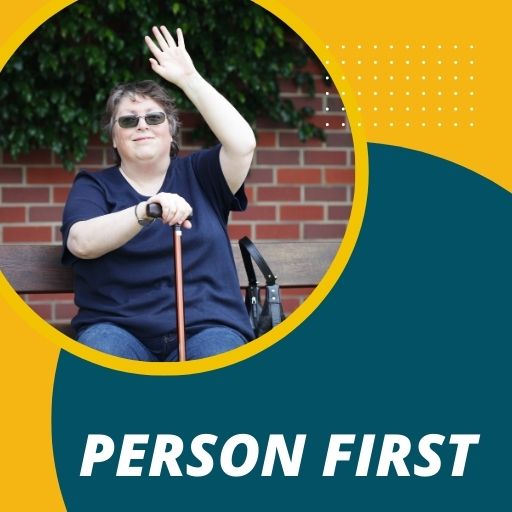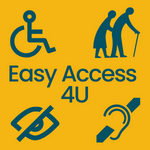Sensitivity Toward People With Disabilities
You don’t have to feel awkward when dealing with a person who has a disability. This course provides some basic tips for you to follow.
And if you are ever unsure how to interact with a person who has a disability, just ask!
How To Be Helpful
Just because someone has a disability, don’t assume he or she needs help.
If the setting is accessible, people with disabilities can usually get around fine.
Adults with disabilities want to be treated as independent people.
Ask Before You Help
Offer assistance only if the person appears to need it. A person with a disability will often communicate when he or she needs help. And if help is required, ask how before you act.
Speak directly to a person with a disability.
Be Sensitive About Physical Contact
Some people with disabilities depend on their arms for balance. Grabbing them, even if your intention is to assist, could knock them off balance.
People with disabilities consider their equipment part of their personal space.

Think First Before You Speak
Always speak directly to the person with a disability, not to his companion, aide or sign language interpreter.
Making small talk with a person who has a disability is great; just talk to him as you would with anyone else.
Respect his privacy. If you ask about his disability, he may feel like you are treating him as a disability, not as a human being.
However, many people with disabilities are comfortable with questions about their disability after getting to know someone.
A simple “I don’t feel comfortable sharing that” by the person with a disability can set the tone if it is not something that he/she is willing to share.
Don’t Make Assumptions
People with disabilities are the best judge of what they can or cannot do. Don’t make decisions for them about participating in any activity.
Depending on the situation, it could be a violation of the Equalities Act 2010 to exclude people because of a presumption about their limitations.
Respond Graciously To Requests
When people who have disabilities ask for assistance at your business, it is not a complaint. It shows they feel comfortable enough in your establishment to ask for what they need.
And if they get a positive response, they will probably come back again and tell their friends about the good service they received.
Put The Person First
Say “person with a disability” rather than “disabled person.” Say “people with disabilities” rather than “the disabled.”
For specific disabilities, saying “person with Tourette syndrome” or “person who has cerebral palsy” is usually a safe bet.
Still, individuals do have their own preferences. If you are not sure what words to use, ask.
Avoid outdated terms like “handicapped, crippled or retarded.” Be aware that many people with disabilities dislike jargony, euphemistic terms like “physically challenged” and “differently abled.”
Say “person who uses a wheelchair” rather than “confined to a wheelchair” or “wheelchair bound.”
The wheelchair is what enables the person to get around and participate in society; it’s liberating, not confining.

